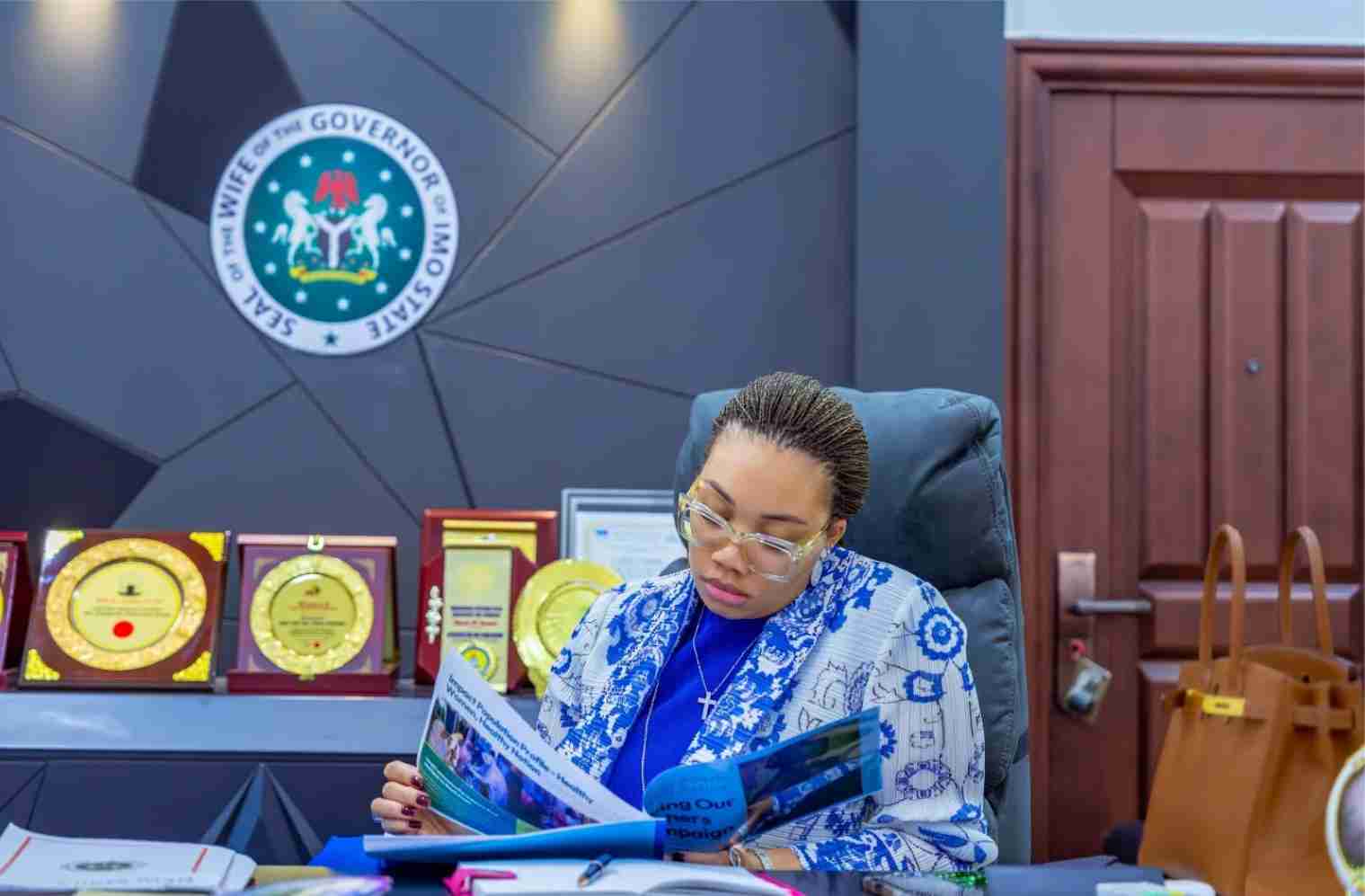“One of the things I learnt in China is high sense of patriotism.”
As we move on in this discussion, we would like you to tell us about growing up?
Ambassador Anderson Nkemakonam Madubike grew up in a very humble background. I remember a lot as if it was yesterday, in the late sixties when I was born, my late dad used to work with expatriates.
He was into physiotherapy in those days; I was born and brought up in Oji River. It was a place a lot of expatriates lived because of the school of deaf and dumb, and the leprosy settlement. You remember after the civil war, ‘the unfortunate civil war’, a lot of wounded soldiers assembled in Oji River. As a result of missionary services, there were a lot of expatriates coming to work at the general hospital. A As a physiotherapist, my dad worked with some of them.
According to what my late parents told me, when I was born, I looked like a white boy. So, one doctor said, name him Anderson, his name should be Anderson, he looks like a white boy. That’s the first aspect of how my name came to be.
And, we all know in most cases, they say, names follow you, and little did I know, that I will eventually end up an international figure. I remember with nostalgia in 2014 when I went to the United States, on Foreign Service, I saw Anderson Street. That Street was named after one of the foremost leaders/administrators of that country. Then of course in the early seventies, after the civil war, I remember Oji River primary school, where I did my primary school; and was made a headboy in 1976.
So, my story has always been that of a goldfish in the midst of fishes. Anywhere I go, I’m easily identified, I stand out.
The then headmaster in Oji Central school where I did my primary education, Late Chief Moris Chukwu, from Inyi Oji River LGA, a disciplinarian, a rare gem in educational administration; identified me at that level and made me a head boy. What was my job then? I still remember, whenever I closed from my class, I would make sure I went over to his office and wait for him to close. Then, I would take his briefcase, open the door for him just typical job of a personal assistant (PA), I did that at that tender age, that’s Anderson’s story for you; responsibility, meticulousness, being focused, and always looking serious in any assignment that I’m given. So, I did that very seriously for one year. As a matter of fact, I was the first person to be made a head boy in that primary school.
I also remember in my primary school then, my mum used to work in a veterinary clinic under the then East Central State Ministry of Agriculture in Oji River and apart from that she also had a small business, she used to prepare akamu, we did all sorts, due to my astuteness and smartness, by 6am my mum will give me akamu to go and sell within the neighbourhood, I used to do that under 30 minutes. Our akamu then was a special one. There was always a rush for it, by 6.30 I would be back to the house to make sure I get to school before 7am, these were consistent morning routines that I was known for.
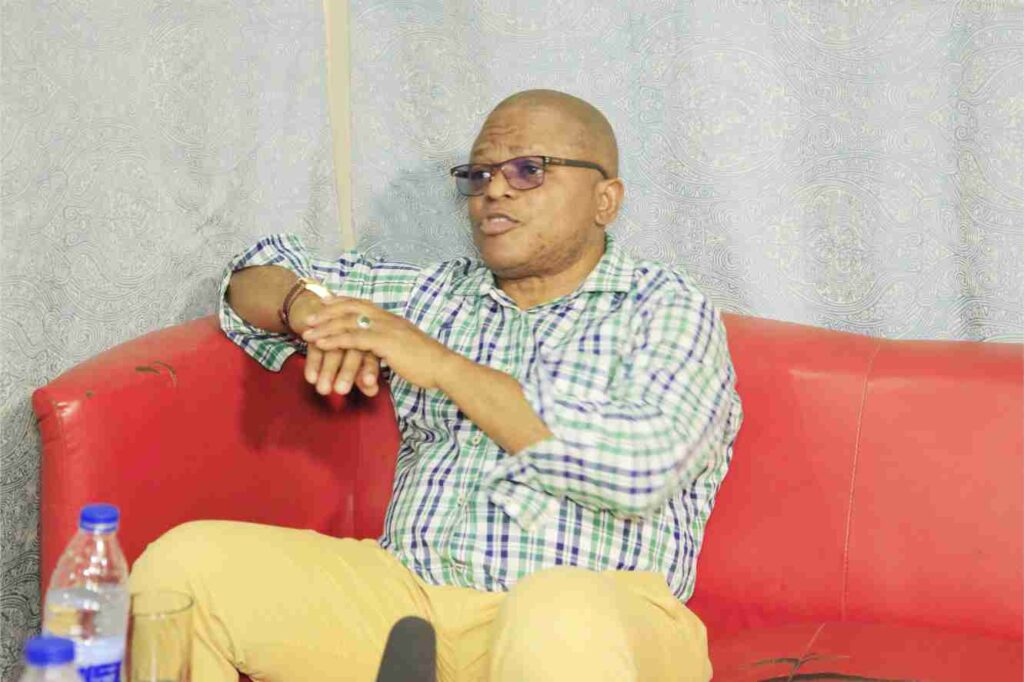
As a little boy growing up, I always cherished hardwork and for you to succeed in life you must believe in it (hard work), you must fear God, you must have a passion, these are things that started guiding me as a young man.
My father was a civil servant but he had a farm, and he was a great yam farmer; hence we did not buy yam from the market. I remember I joined him to do all that, and we also went hunting, I loved to hunt. Behind our house, there was a forest where I used to go to set traps for rabbits and all that; there was a day I caught a grasscutter, you know catching a grasscutter doesn’t come easy and I caught this one which was celebrated in the neighbourhood. I did all that just to tell you that some people from childhood knew that I was getting somewhere.
Tito, you know me as athlete back in our university days, you noticed also that this afternoon, I went to the gym to keep fit. In primary school, I played with the school team and I was a good athlete. And of course, if you are talking about my secondary school, those days in 1981, I came out number 1 in the whole Awgu Division 100 metres-dash.
Growing up, I was also involved in church activities, especially the choir, because I had a good voice. My elder sisters and my late mother were also good choristers. I also was in student unionism, we did all that, which are not common these days, they are some of the things our youth miss. So, growing up, then in the seventies and eighties, Nigeria was a beautiful country. You know there was communal life, there was security, and there were standards for everything. But unfortunately, we lost them. As a diplomat, I know that every country is transition, Nigeria is indeed in transition; and I’m positive that one day we’ll get it right. So, these are some of my thoughts that I could recollect about growing up.
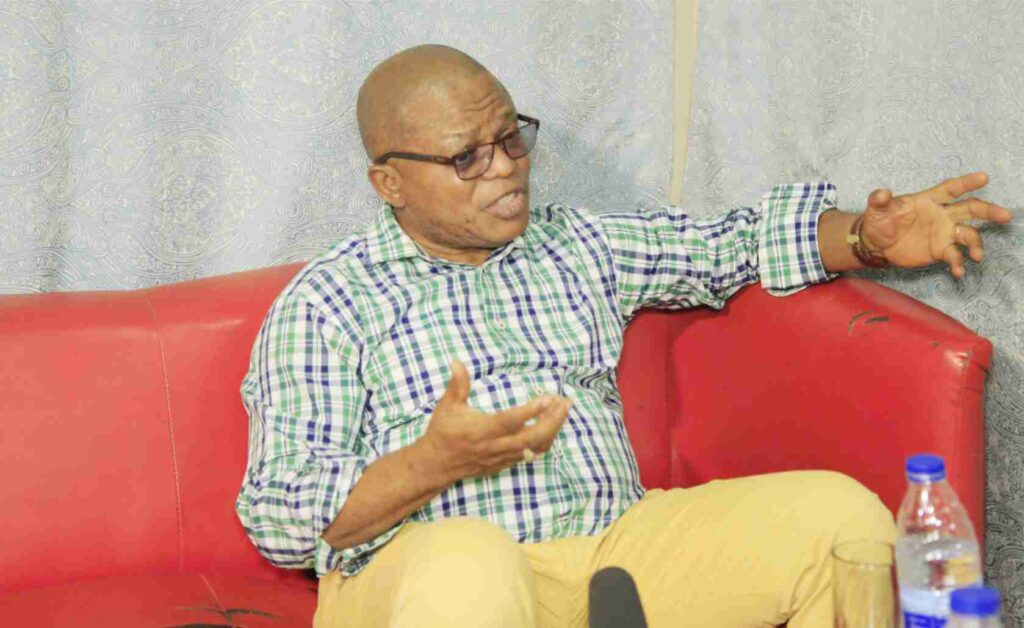
Which secondary school did you attend?
Yes, I mentioned that I attended Saint Vincent Secondary School, Agbogwugwu, it’s a Catholic Mission School.
Fast forward from there to your university days?
Well, you can tell some of the university day’s story, we were in the same department, you remember? First year I was not cutout for politics, I never liked politics. I was never interested in class representative position which you know, but in our second year one of our colleagues who was the class representative, was found to be dishonest, I won’t mention his name and from nowhere people approached me saying ‘Andersen you have to be our class representative’ and I someone, of course who liked taking responsibilities that was all and immediately I took over and the class was organized and we all worked like a family until we graduated with good grades and of course ASUTECH then unlike what you see now, was about hard work, it was about studies, it was about being serious and having focus.
While in ASUTECH there was something that stood out in my life, you remember in our last year, everyone was lobbying to go for the mandatory National Youth Service Corps in Port-Harcourt, Lagos and Abuja and these were the children of the elites. There was this particular day somebody said Andersen you are going to serve in Lagos and I said wow! Destiny and Grace of God have always followed me; and also, I recollect that in our family I am the last born, but now I am the greatest by the Grace of God and when people say ambassador, they want to remind me that I am the only ambassador in my town, you are the only ambassador in your local government bla bla in all these I believed in God. As I was informed I was going to serve in Lagos, I did not sleep that night that alone showed me that God has a purpose for me; because going to Lagos means that there is an opportunity for me.
When I went to Lagos for the mandatory NYSC, I was put into teaching for my primary assignment and I was like why will I come to Lagos to teach? Then it did not matter what you are given what mattered was to remain focused, trust in God and at the end of the day his will was made manifest. Of course, I was in Lagos, I finished and started looking for job then my story changed when I came in contact with Rear Admiral Alison Madueke (Rtd).
Can you say that your training in the Faculty of Management Science of ASUTECH prepared you for this day?
I wouldn’t say my training; from my perspective, I think great people are born, you determine what you want to be in life.
Like I said, when I was growing up, I always associated with people who were bigger than me. I had always believed in hard work and that for you to succeed, you must have a vision, have a passion, believe in hard work and you must fear God. These are the things that prepared me, I wouldn’t say its training, yes, training is part of it.
You know, most of us that got trained in the Faculty of Management Sciences, are not where we wanted to be today. A lot depends on you, on what you want. When I was young, I had always believed in hardwork, there is this story that I always share, when we were growing up in Oji River, there was a particular family that encouraged me, we have this Erike family, I keep mentioning it anywhere I talk. This particular Erike family are from Awka, Christian Erike, they stood out in Oji River. Then six of their people were in the United States.
I started asking myself questions, my senior siblings were nowhere and I told myself, if the Erikes can do this, why can’t Anderson do it? This is what I always remember. Their dad was my godfather, I still remember when I was going back to school, and Mr. Erike would use his official car to drop me. The driver would drop me in St. Vincent’s Secondary School, and my childhood friend by name Uju, would be dropped in Awkunanaw Girls Secondary School, Enugu. So, this is the family that I looked up to.
I asked myself, if this people can be this, why not me? Do they have two heads? So, I always remember that family, they encouraged me, motivated me to believe in hard work, and to know that life is what you make it to be, and grace of God backing you, I don’t want to sound immodest, there must be grace of God.
How do you handle pressure and challenges in your job?
Nobody likes pressure, you do your best by looking at priorities, when there is pressure, you calm down. What I have learnt over these years is that there’s no situation that is not surmountable. So, when you have challenges, calm down, there’s always a solution, it may not be immediate. If you don’t calm down, you make mistakes, and you would not be able to solve the problem. So, pressure or no pressure, first of all, “drink cold water” and think outside the box, solutions will always come. There is nothing except when the head is off that there won’t be any solution to it. That’s what I’ve learnt over the years, that anytime pressure is high, it must surely come down, water must find its level in all circumstances.
Can you share a time when you successfully mediated over a conflict?
For a diplomat, more so, as Director Policy Research and Statistics (PRS), Federal Ministry of Foreign Affairs, I travel often to our missions, and when we go out there, the first thing we do is to get the officers together for a meeting. Ask them, how are you running the missions? What are the challenges you have? You advise them generally, so mediation is the core responsibility of every diplomat. You must mediate, you must let people know that you can’t work under an acrimonious situation. Things must work, and of course, you respect positions, diplomacy is a hierarchical service, It’s like military service.
There will always be crisis, the important thing is that crisis or no crisis, there must be solution to every situation. You must listen at all level. First, there must be reasons I don’t know, why God chose me out of millions. Even the ambassadorial position in a year or years, it comes out, we are about hundred among the millions of Nigerians; yet there are those who don’t appreciate what God has done for them. Some of us who are leaders must know that God gave you that position to serve God as well as humanity, by the time we begin to realize this, we’ll begin to lead better and our country will be better overall.
In diplomacy, you think about mediation and reconciliation, they all work together, and we do it most of the time. In a few days, I’ll be traveling to one of our missions, like I said, we call it M and E, monitoring and evaluation of whatever they’re doing there, we engage officers in a meeting, if there are challenges, or issues concerning people, you must address all these at the end of the day, make them to understand that you can’t do anything productive when the situation is not conducive.
How do you stay informed in these International Affairs?
Well, the media is there, we have contacts, for an average diplomat in the morning at least you listen to news, BBC, CNN. You’ll be well informed, you talk to your colleagues, of course, when we come to the office, we have various platforms, and these are for you to stay updated, very important.
How do you quickly adapt to a new environment?
Well, from the first day, you joined as a diplomat, of course, as an adult you adapt, where it is usually difficult is for our kids, they don’t easily adapt. But, for adults, I must tell you, most of us are doing that, in this international job, when you go out, you miss your country, you miss local foods like eba, akpu (fufu), you miss a lot of things. So, we’re always looking forward to coming back home to eat our okro soup. There are some countries where you can’t see them. Nigerian cuisines are special, so, we shouldn’t neglect that, we miss home. That’s why most diplomats have their children settled abroad, because you keep going back and forth from one country to the other, which is not good for the development of the children. So, you get to some countries, you allow them to settle, then you’re on your own.
Sir, can you describe for us, when you have to advocate for Nigeria’s interest?
Not when you have to, in all instances, advocate for Nigerian interests. For instance, in China we had a lot of platforms. We did conferences, especially investment conferences. We did all sorts, that’s advocating Nigerian interest. I remember while in Australia, I was among the few African ambassadors that will talk about grace of God publicly before my colleagues from the western world, and they will be looking at me with curiosity. Yes, for me to be where I am today, it’s by the grace of God, and you know, Nigeria, for those of us who understand, is a big country, we are blessed, so, while we are out there, some of us will raise our shoulders up by representing Nigeria.
Nigeria is blessed, is it the population? I remember while in the United States, they said, out of every four Nigerians domiciled in the United States of America, three (3) has a second degree. But out of every four United States citizen, one has a second degree. It was also publicly said that the chunk of Nigerian professionals in the medical field, if they down tools in the United States, the economy will feel it. Nigerians are great, we are great, some of these challenges we have here are temporary just like I said, every country is in transition, we will get it right. Nigerians are always at their best be it in Europe, America, Asia and Australia.
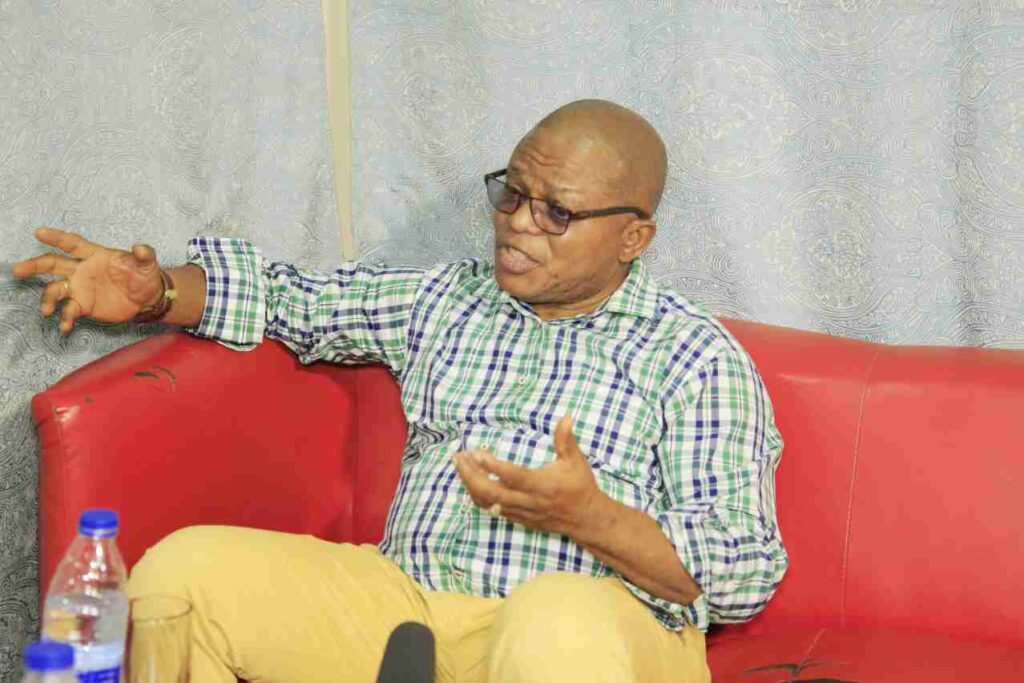
As a Consul General in the Republic of China, can you let us know some of the experiences that you had?
Yes, I remember in Shanghai, I was very active, we did conferences, and we had trade missions to China. Let me say it publicly, the way they (Chinese) love their country is amazing. One of the things I learnt in China is high sense of patriotism. Each time when I speak while on my tour of duty, I always spoke passionately about Nigeria, that’s why some of the Chinese I came in contact with while in China always referred to me as being young. I would always ask young how?
As I’m talking to you, I’m 59, but when people see me, they won’t believe that I’m 59, I look young, but I’m not young. Young is about the heart and spirit, and I will do my job professionally and competently and that’s that.
So, China being a big economy, there are opportunities, so, we have to engage them in all spheres, socially, economically, you know, they have a lot of success stories.
Ethical issues in in diplomacy. How do you handle that?
Well, every country is unique, but if you are in a third world country, you also have to respect their sensitivities whether you like it or not. Diplomacy is a projection of your local policy in a foreign land, isn’t it? We are talking about protecting the interests of Nigerians, trade interest, human interest, all kinds of interest, but at the same time, you should also be conscious of local laws, the two must be married together, for it to succeed.
For instance, people who get involved in manufacture of fake drugs in China are virtually beheaded, if found guilty. But here, we handle such with kid’s gloves. So, when you found Nigerians, as a consular general, when you found Nigerians running foul of the Chinese law, how did you take it?
In most cases, we engage Nigerians on routine meetings. As soon as you are posted to any country, you identify Nigerian leaders that will help you to bring other people together. We engage them in most cases, advise them to stay away from doing illegal things, of course, you know, our name is very ‘sweet’.
During the independence activities, they come to the residence, we all stay together, and we advise them. For those of them in schools, the consul general takes time to go round schools. And when we go, we identify Nigerian students to advise them. Because this ambassadorial representation is not just for ambassadors. All Nigerians staying abroad are representatives of Nigeria in one way or the other, so, we make sure we let them know that all of us are ambassadors. Whatever bad thing you do, rubs off on other Nigerians.
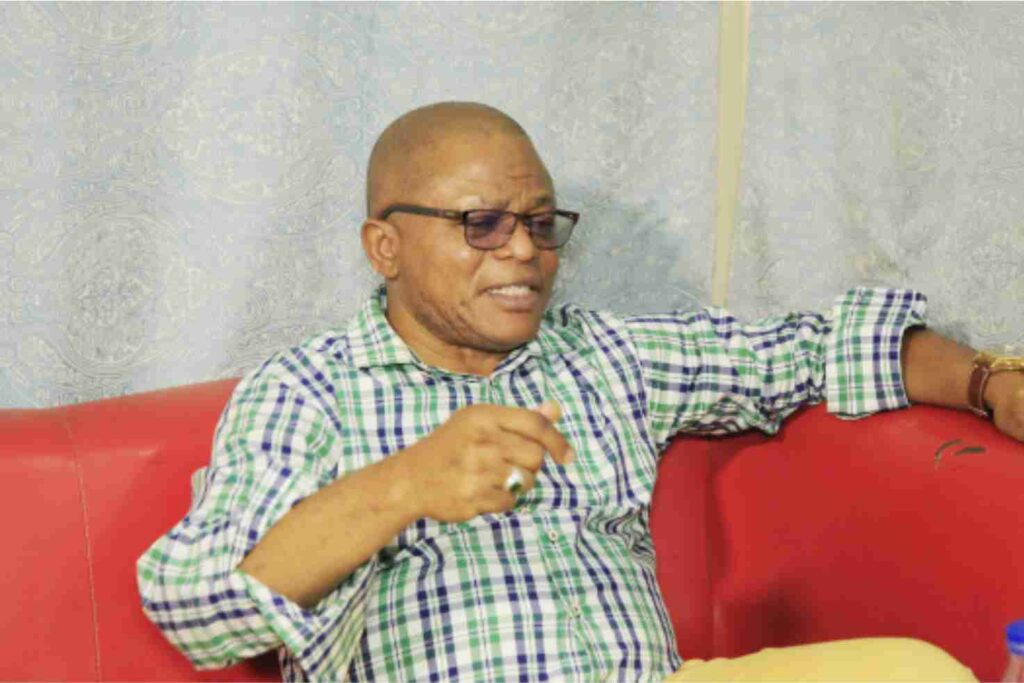
How do you balance national interest and global competition?
Anytime you are there you’re going with your national interest first and foremost. If you’re not sure, you consult. In most cases, you are required to call home for consultation. In dicey situations, a diplomat is expected to come back for a meeting with his superiors and take further briefing from the government of the Federal Republic of Nigeria.
What role does public policy plays in international relations?
The two are intertwined, international relations and public policy are two of the same mother and father, they can’t work in isolation. International relation is diplomacy. International relation is the communication between countries to ensure that there is peace in the world. Diplomacy is also an agency of government to promote the interest of the government at same time is a Promotion of bilateral relations, friendly relation between countries. So, it’s all about peace and promotion of bilateral relations, advancing your national interest in the host country. It’s about advancing your national interests.
How do you handle shortfalls in funding, when the missions are not receiving enough funds?
The issue of funding is being addressed by the government. The present government is addressing lack of funds in missions, but, you know, funding can never be adequate. Nigeria, like I said before, is a country under transition, our independence, is not up to 70 years. When we compare it with the Europeans and Americans, their independence is hundreds of years, so, give Nigeria a little break, we will get there, it’s about transition. I’m sure if you look at where we are now in the next ten, fifteen years, Nigeria will get to another level.
Disagreements within your diplomatic team, how do you take care of that? There’s a mechanism of rapprochement, dialogue, meetings, you must consult. If there are disagreements with constituencies, we will look into it in a meeting and resolve it. The world is always better with dialogue, look at the hostilities between Gaza and Israel, dialogue is ongoing. So, dialogue and diplomacy are the way forward.
Now that you mentioned the conflict in Gaza, what is Nigeria’s stand?
Nigeria have continued to encourage both parties to embrace dialogue, live and let live. Because there’s no way you can say that Palestinians are not entitled to have a state. So, the best thing is a peaceful and amicable solution so that both parties can comfortably stay together.
Tell us about your experience in challenging situations, be it in China, Australia, New Zealand and the Pacific, because your last posting was a massive one?
It was quite challenging, there is an article I wrote about Australia; it’s my vision, unfortunately, we did not stay beyond two years. Australia is a beautiful country, a developed economy with a lot of opportunities. Due to the distance, we are not doing much with them. The average Nigerian believes in United Kingdom, United States of America, Canada etc. Australia’s education sector, science, technology, everything, are well advanced. They’re looking for collaborations from Africa, but I hadn’t enough time to promote all that. As director of PRS, we’re still pushing, that it shouldn’t be with countries with immediate neighborhood alone. We should always look beyond the contiguous countries around us. Australia is far, but, as an Igbo man, you know that anything that is far is where you find a beautiful thing.
In my short stay in Australia, I didn’t quite enjoy my stay because by the time I learnt the place and wanted to settle down, I was called back. That was part of my challenge. I concentrated more on collaboration on education, scouting for scholarships, Nigerian scholarships, and Australia is another country that offers opportunities. When you study, and do well, there are chances of getting their citizenship. You know Nigerians are good at migrating. We love traveling. So, these are the things I was pushing for, especially education and collaboration in solid minerals mining. Australia is good in solid mineral mining and all that.
We did our best, but I had wished, I was given more time to do more. Most of the meetings I had or encounters I had on the education sector were successful. I remember some Universities in Nigeria were able to connect with the ones over there to start one form of collaboration or the other.
When we talk of New Zealand, we’re talking of Papua New Guinea, we’re talking of Vanuatu, some of those Pacific countries, they are blacks. So, our closing ranks with them will further help them to be standing stronger. They need Nigeria because we are the biggest black nation in the world therefore, Nigeria should be able to show the way.

How do you relax?
It is just of recent that I realized that I needed to relax more. I believed so much in working, and that was almost affecting my health. I started having signs of high blood pressure and the doctors advised me to relax more to avoid executive stress. Now I go to the gymnasium to exercise and I take time to relax because, all work and no play, makes jack a dull boy.
It is important to relax, go to places where you can smile, laugh, chat with friends, and life gets better. If something happens to you, assuming you drop on your track, other people will continue and get first, second, and third. If you’re in a race, you have to be conscious of everything because if you don’t make it to the end of the line, other people will make it. So relaxing is important.
Like this morning, I went to the gym before coming here that’s the reason I’m feeling a little tired. So, I do it more often now, when you’re not supposed to work, don’t work. Don’t overstress yourself, manage your life.
What’s your favorite book(s), what are you reading now?
What I’m reading now is a religious book, “Birthing His Excellence” by a great man of God, Arome Osayi, the book is about God’s excellence, I got attracted to start reading religious books now because my life has been more of the grace of God. When I look back to my journey in life, my career, and I remember when I was in South Africa and was recalled to come and be the director of protocol to the wife of the President Goodluck Ebele Jonathan. I still stand in awe of this mighty God
So, there are some unique things that happened in my life, even how I got the Foreign Service job is a miracle. Becoming the director of PRS is a miracle, being in Australia was a miracle, a lot of things around me are so miraculous. So, it’s now making me to go closer to God and some of my prayer partners are still telling me, that, God says, you’re still going far. So, I need to prepare myself, I still have the energy, I have the vision, I have the passion, and why not?
Of course, it may be politics, but not jumping into the field like some of them. If my state feels at some point that my service is needed, I will gladly accept to serve my state in any capacity.
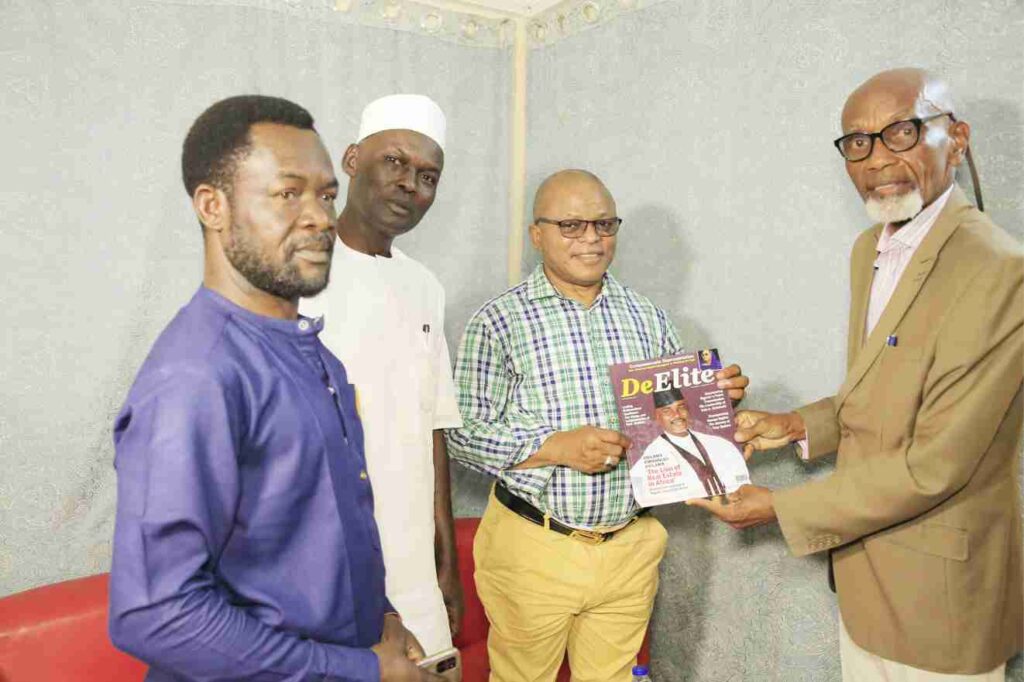
When your work in the Foreign Affairs comes to an end, how would you want to continue to serve your people, especially, with the wealth of experience you have garnered, are you considering politics?
Well, I’m passionate, and I believe that part of the challenges we have is leadership, it’s Leadership and quality leadership. But there have been some quarters who believe followership is also part of it. But me, I’m of the school of thought that believe it’s about leadership. Look at most countries, institutions are there that guides how they run their country. But for developing world like Africa, we need leadership, because three quarter of our citizens are illiterates. So, if when I leave service in the next one year, yes, I’m willing, but of course, I’m going into consultancy, I may go into other little things. But if my local government or my state come and say, oh, ambassador, given your knowledge, experience come and do this for us. Why not?
Ambassador Anderson N. Madubike is married with four children (three boys and one girl).



